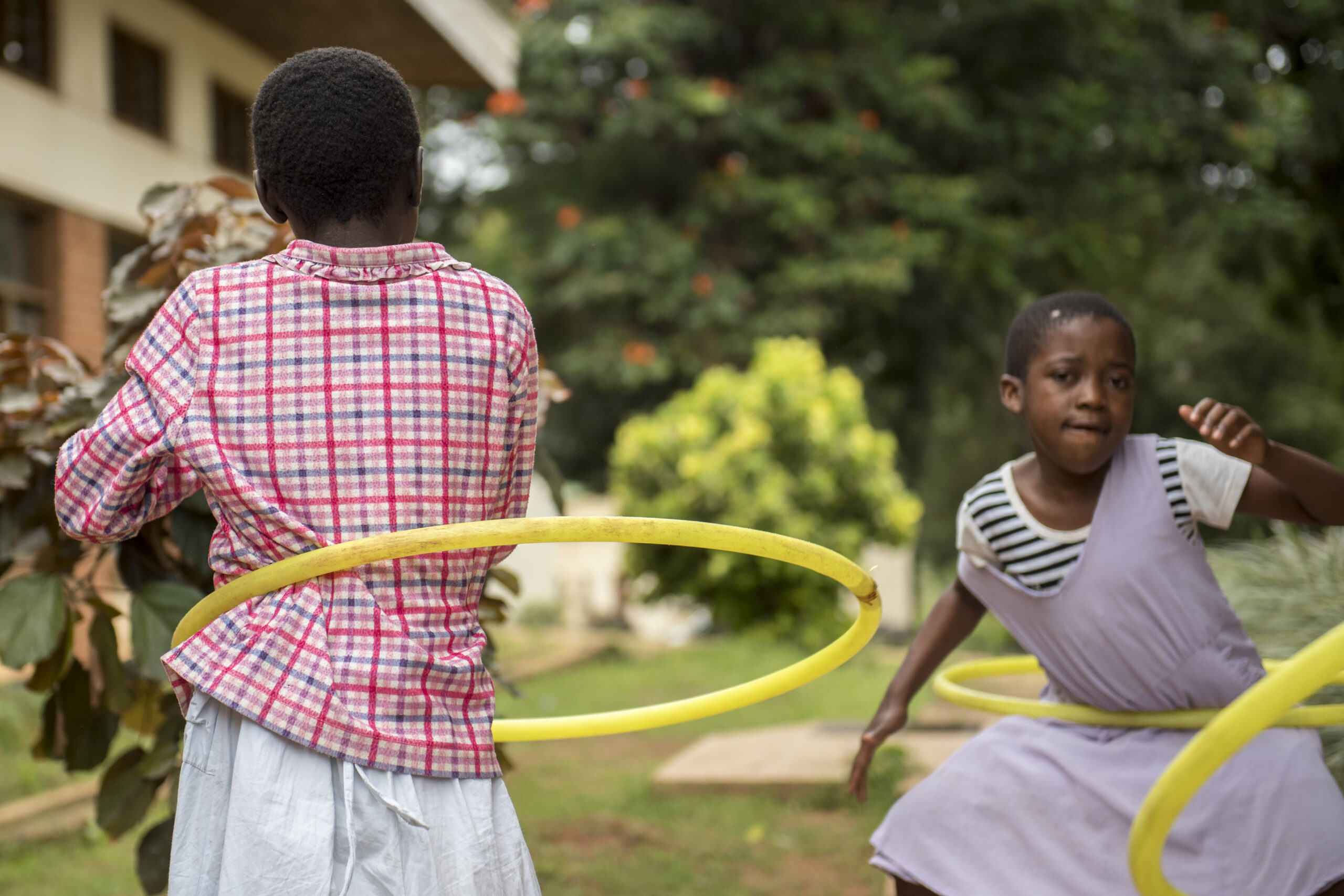World Tuberculosis (TB) Awareness Day honors the day in 1882 when Robert Koch, M.D., discovered the cause of TB, mycobacterium tuberculosis — opening the way toward diagnosing and curing TB. On this day, EGPAF takes a moment to recognize the importance of care and treatment for HIV/TB co-infection. We sat down with a champion in the fight against the dual, lethal infections, Appolinaire Tiam, M.D., country director of EGPAF-Lesotho. Lesotho is home to the second highest prevalence for both HIV and TB in the world.
Why is TB and HIV co-infection an important area of your work in Lesotho?
HIV/TB co-infection poses a significant challenge: 75% of those with active TB are HIV-positive. The estimated TB mortality rate in HIV co-infected patients was 250 per 100,000 persons in 2013. HIV and TB have a number of commonalities in terms of disease burden, epidemiology, and strategies of control, so taking targeted action against both diseases makes practical sense.
When did your work in this area begin and how?
Since 2010, EGPAF has supported full integration of prevention of mother-to-child HIV transmission services with maternal, neonatal, and child health (MNCH) services, creating better access to HIV prevention, care and treatment among pregnant women. While working on this integration, we began folding in TB services for pregnant women at many of our integrated clinic sites.
How has TB care and treatment affected the lives of the women and families EGPAF serves in its supported clinics?
Integration of TB and HIV services has not only improved health system cost efficiency and access to services, it has also improved health outcomes and reduced the number of deaths among HIV-positive patients. EGPAF-Lesotho has found that both antenatal care (pre-natal) and postnatal care clinics are suitable platforms for TB screening and services. In a recent operations research study, uptake of intensified case finding in MNCH sites was over 90% and isoniazid preventive therapy (a 6-month prophylaxis drug regimen given to individuals with or at high risk of HIV for TB) was well tolerated in pregnant women.
EGPAF is working to ensure that women in MNCH are screened for TB, that HIV-positive women and children without active TB are given isoniazid prevention therapy, and that those suspected of having active TB (or who exhibit symptoms of the disease) are diagnosed and initiated on TB treatment.
How has EGPAF progressed in the field of HIV/TB co-infection care and treatment in Lesotho?
In 2012, EGPAF procured the first GeneXpert platform, a quick and easy TB diagnostic tool, in Lesotho. Since 2013, EGPAF’s TB/HIV program portfolio has expanded in Lesotho beyond TB care and treatment for women and children in MNCH. EGPAF-Lesotho is now working to ensure that all those receiving HIV services are screened for TB and all patients using TB services receive HIV testing and counseling in six districts across the country. EGPAF is also scaling up antiretroviral initiation within TB clinics to ensure HIV-positive, TB patients presenting at TB clinics are enrolled into HIV care and treatment.
Since transfer, after the conclusion of TB treatment, can lead to loss to patient follow-up challenges, EGPAF is now using innovative approaches to facilitate these transitions. At the community level, EGPAF leverages a village health worker network and other community structures to maximize TB patient tracing (identifying all those who have been in contact with an infected person) and provide referrals to TB patients and those showing symptoms to care and treatment.
What does this day mean to you and the work you and your team do in country?
Today, the world should recognize the work that we do to combat an entirely preventable and curable disease which continues to affect the lives of many. We should acknowledge the strides we’ve made in combatting these dual epidemics, the innovations that have been made and all of the efforts we have put forth to save lives. We should also remember the lives of those who have been affected by TB, everywhere.




